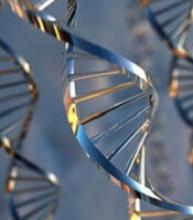The US Food and Drug Administration (FDA) has granted orphan drug designation for SB-525 as a treatment for hemophilia A.
SB-525 is a recombinant adeno-associated virus 2/6 (AAV2/6) vector that expresses a human F8 complementary DNA (cDNA) cassette.
The vector encodes a liver-specific promoter module, and AAV2/6 exhibits liver tropism.
This provides the potential for long-term hepatic production of factor VIII in patients with hemophilia A, according to Sangamo Therapeutics, Inc., the company developing SB-525.
In research presented at the 2016 ASH Annual Meeting (abstract 1173), SB-525 induced the expression of significant levels of human factor VIII in mice and non-human primates (NHPs). SB-525 also corrected the bleeding defect in a mouse model of hemophilia A.
Dosing studies in NHPs demonstrated a robust and reproducible dose response curve, according to researchers. In these animals, mean human factor VIII levels ranged from 5% of normal at the lowest dose to 230% at the highest (AAV doses in the 6 x 1011 – 6 x 1012 vgs/kg range).
The researchers said the peak circulating human factor VIII levels in these experiments exceeded levels previously reported in NHPs. And this could significantly reduce the dose required to achieve therapeutically relevant levels in human subjects.
Sangamo is planning to open a phase 1/2 trial of SB-525 in adults with hemophilia A later this quarter.
About orphan designation
The FDA grants orphan designation to products intended to treat, diagnose, or prevent diseases/disorders that affect fewer than 200,000 people in the US.
The designation provides incentives for sponsors to develop products for rare diseases. This may include tax credits toward the cost of clinical trials, prescription drug user fee waivers, and 7 years of market exclusivity if the product is approved.


